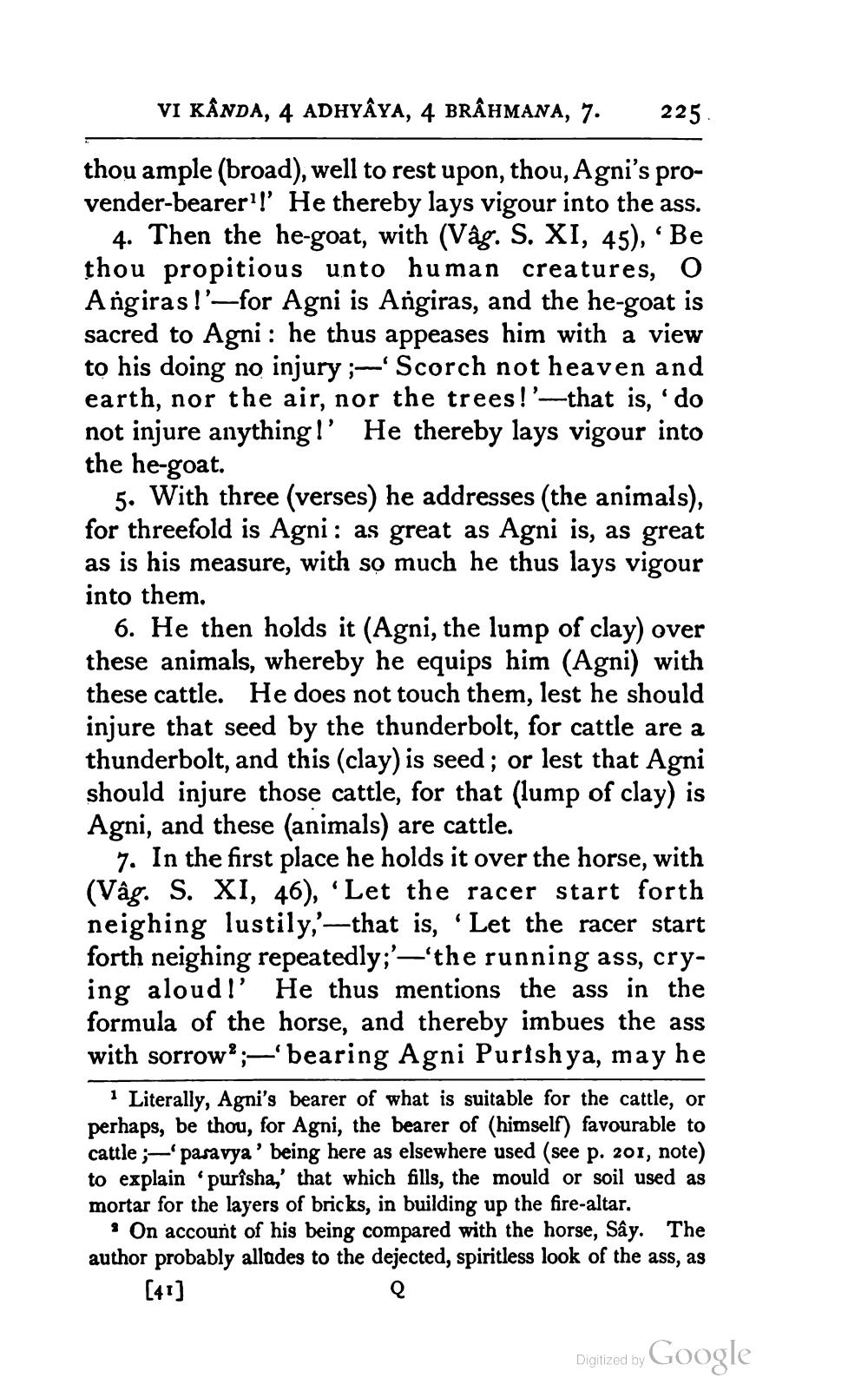________________
VI KÂNDA, 4 ADHYAYA, 4 BRÂHMANA, 7.
225.
thou ample (broad), well to rest upon, thou, Agni's provender-bearer?!' He thereby lays vigour into the ass.
4. Then the he-goat, with (Vâg. S. XI, 45), "Be thou propitious unto human creatures, O Angiras!'-for Agni is Angiras, and the he-goat is sacred to Agni: he thus appeases him with a view to his doing no injury ;-'Scorch not heaven and earth, nor the air, nor the trees!'--that is, 'do not injure anything !' He thereby lays vigour into the he-goat.
5. With three (verses) he addresses (the animals), for threefold is Agni: as great as Agni is, as great as is his measure, with so much he thus lays vigour into them.
6. He then holds it (Agni, the lump of clay) over these animals, whereby he equips him (Agni) with these cattle. He does not touch them, lest he should injure that seed by the thunderbolt, for cattle are a thunderbolt, and this (clay) is seed; or lest that Agni should injure those cattle, for that (lump of clay) is Agni, and these (animals) are cattle.
7. In the first place he holds it over the horse, with (Vâg. S. XI, 46), 'Let the racer start forth neighing lustily,'—that is, 'Let the racer start forth neighing repeatedly;'—'the running ass, crying aloud!' He thus mentions the ass in the formula of the horse, and thereby imbues the ass with sorrow”;—'bearing Agni Purishya, may he
Literally, Agni's bearer of what is suitable for the cattle, or perhaps, be thou, for Agni, the bearer of (himself) favourable to cattle ;—pasavya' being here as elsewhere used (see p. 201, note) to explain purîsha,' that which fills, the mould or soil used as mortar for the layers of bricks, in building up the fire-altar,
: On account of his being compared with the horse, Sây. The author probably allades to the dejected, spiritless look of the ass, as
[41]
Digitized by Google




